Source: umagazine
Many people know Pai Hsien-yung because of his novels. But not everyone knows that in addition to being a prolific writer, Pai is also a champion of Kun opera and has tirelessly promoted this traditional form of Chinese art over the past decade. ‘It’s a remarkable form of art, and we must reverse its decline,’ he says. Pai fell in love with Kun opera after watching The Palace of Eternal Youth in Shanghai in 1987, and has since devoted himself wholeheartedly to promoting the art form. The youth version of The Peony Pavilion he produced has helped countless college students gain a new understanding of traditional Chinese culture. But his greatest hope is that the revitalisation of the 600-year-old art of Kun opera will bring about the revitalisation of traditional Chinese culture as a whole.
On 24 February 2016, Pai visited the University of Macau (UM) to accept an honorary doctor of letters degree. He also gave a lecture to a packed house, in which he shared his experiences with Kun opera over the past decade. During his tightly scheduled stay at UM, he was always surrounded by students eager to ask him questions, which he patiently answered. The editorial team of umagazine seized the opportunity to conduct an exclusive interview with Pai. In this interview, Pai shares with us his insightful views on liberal arts education and the importance of preserving and promoting traditional Chinese culture.
P: Pai Hsien-yung U: umagazine
U: Why is liberal arts education important to college students?
P: Liberal arts education is very important to college students, regardless of their majors. Liberal arts education plays a crucial role in shaping the students’ character development. Even science students need to have cultural literacy, with some basic knowledge of traditional Chinese culture, such as the classics of traditional Chinese operas, literature, and other forms of art. The United States is a high-tech powerhouse, but American universities are very strong in liberal arts education. Universities such as Harvard and Yale all have very strong programmes in liberal arts disciplines such as literature, philosophy, and history, and students enrolled in these programmes are usually top-notch students. I teach Kun opera courses at Peking University, the Chinese University of Hong Kong, and Taiwan University, as part of their liberal arts education and general education. I also teach an introductory course in The Dream of the Red Chamber at Taiwan University. I think this should be a required course at universities. The Dream of the Red Chamber is a classic and a must-read for college students.
U: Why is Kun opera important in college students’ aesthetic education?
P: If you visit the Palace Museum in Beijing or Taipei, you would see an exhibition of paintings, chinaware, bronze ware, and other forms of art. You could see from the exhibits that we actually developed a highly sophisticated set of aesthetic ideals a long time ago. Unfortunately, around the turn of the 20th century, we seemed to start losing confidence in our aesthetics. We should restore this confidence and learn to distinguish between beautiful and ugly and to appreciate traditional forms of art. And I think traditional operas can help achieve this goal. China has a turbulent history, especially over the past century. This has caused some damage to our cultural roots. Perhaps that’s why deep down Chinese people feel kind of rootless. Kun opera evokes a sense of deja vu in Chinese people. Its aesthetic appeal can’t help but stir up in our heart a longing for the revitalisation of traditional culture. That Kun opera has been greeted with an enthusiastic response from college students is in essence a case of a restored sense of cultural identity. We once lost confidence in our own aesthetics and followed Western ideals instead. Now what we need to do is to get back into touch with, understand, and promote our own aesthetic culture.
U: Why is it so important to preserve traditional culture?
P: We need to re-evaluate our traditional culture that dates back thousands of years. With so many relics being unearthed, the history of our civilisation needs to be re-written. Western cultures are remarkable in their own ways, but we must not lose our ‘roots’ in the process of learning Western science and technology. Every university in the US makes the study of Western civilisation a required course for all the students, regardless of their majors. That’s why their cultures have been well preserved and successfully passed down from generation to generation. Chinese universities should offer similar courses to help our students better understand Chinese culture. If we don’t have some basic understanding of our own cultural heritage, which is a huge treasure trove, a cultural identity crisis will ensue. Many problems we face today have their roots in the lack of a sense of cultural identity, and I think the first step in tackling these problems is education. I have a hope, which I believe is shared by many, that one day we will have our own Renaissance, similar to the one that happened in Europe, which will lead to a revitalization of traditional Chinese culture. This has been my longtime wish, and the reason why I have been actively involved in cultural causes.
U: Do you think preserving tradition and pursuing innovation are mutually exclusive?
P: Absolutely not. After you watch a Kun opera play, you can still go home and use your computer to browse the internet. Actually, the opposite is true. A deeper understanding of traditional culture might just provide inspiration for innovation. For example, I once visited a museum in Florence and happened upon an exhibition of modern designs. It is precisely because they drew inspiration from their rich cultural heritage that they were able to create those beautiful modern designs and inventions. We also have a rich cultural heritage, as manifested in the various forms of art such as chinaware, bronze ware, and sculptures. If we can draw inspiration from this treasure trove, we would be able to create things that are both modern and uniquely Chinese. Japan does a very good job of preserving traditional culture. This is especially true in Kyoto. Germany, France, and Japan are highly innovative nations, but none of them destroys tradition in the pursuit of innovation. A school of thought emerged during the May Fourth Movement in China, which contended that traditions were an impediment to progress. I think this argument is wrong. How can we discard our traditional culture when there are so many gems in it?
U: What do you think of the co-existence of traditional Chinese culture and Western cultures in Macao?
P: Hong Kong and Macao are special cases in that they were both colonies of Western countries, which allowed Western cultures to spread and take root. Macao’s first contact with Europe happened relatively early. Having a mix of Chinese and Western cultures provides an advantage, because traditional Chinese culture can be preserved while valuable things can be learned from Western cultures. Traditional Chinese culture is actually better preserved in Hong Kong and Macao, which I think is because the colonial history makes them cherish tradition more.
About Pai Hsien-yung
Pai Hsien-yung is a world-renowned writer and a champion of the art of Kun opera. He has published many works, including short story collections Lonely Seventeen, Taipei People and The New Yorker; the essay collection Mo Ran Hui Shou (Suddenly Turning Back); and the novel Crystal Boys. His works have been translated into many languages and many have been adapted into plays and films. Over the past decade, Pai has worked tirelessly to promote traditional Chinese culture. The youth version of Peony Pavilion he produced has been performed around the world to rave reviews.
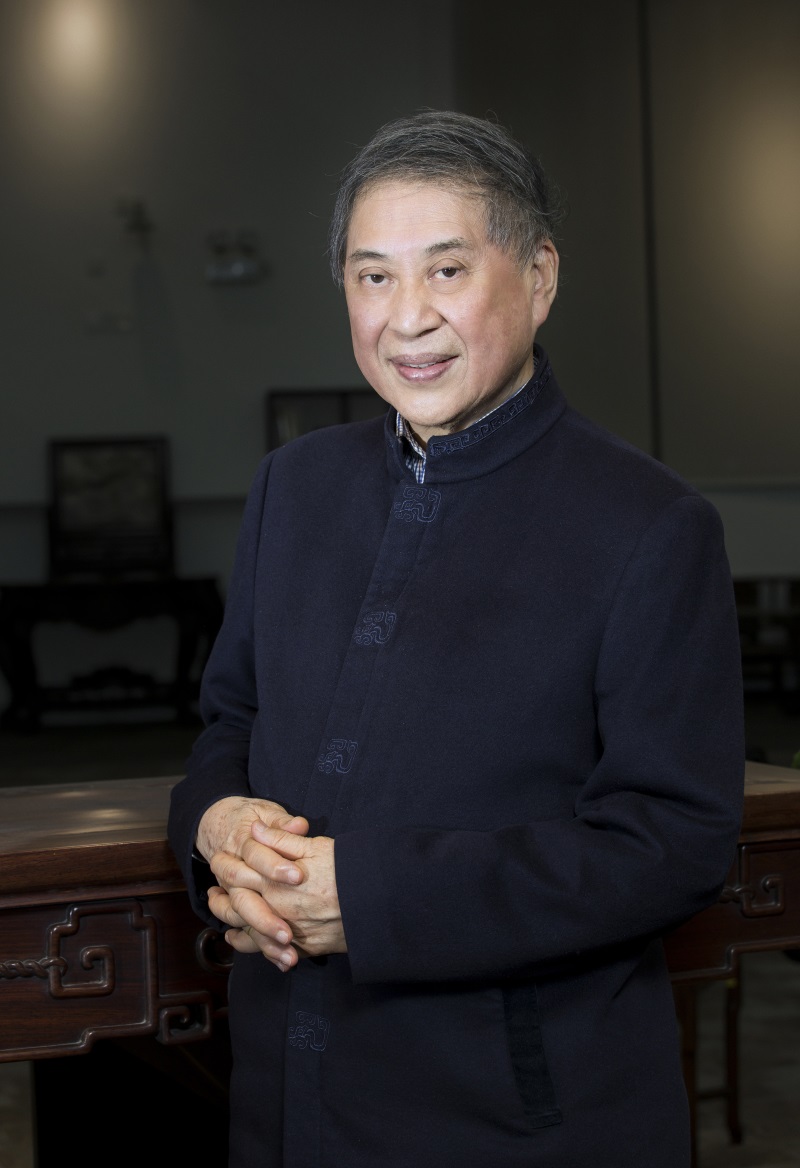
38554-80224
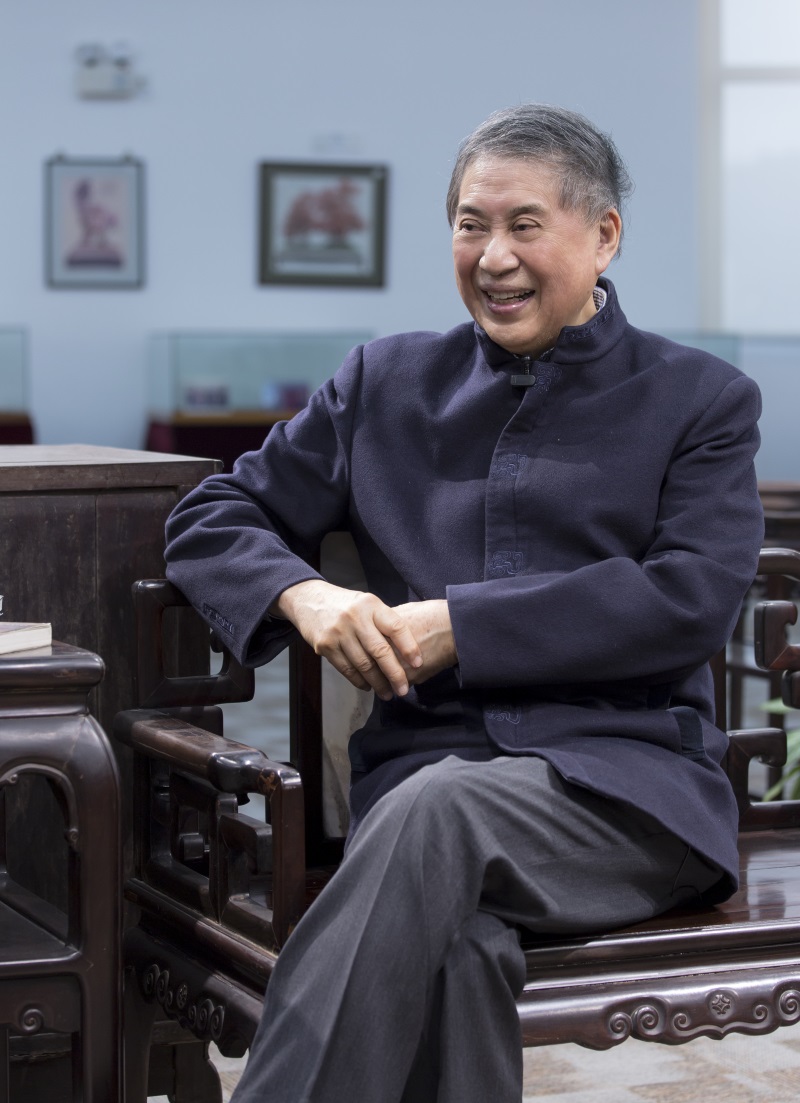
Pai Hsien-yung encourages college students to read more classics in order to learn more about traditional Chinese culture
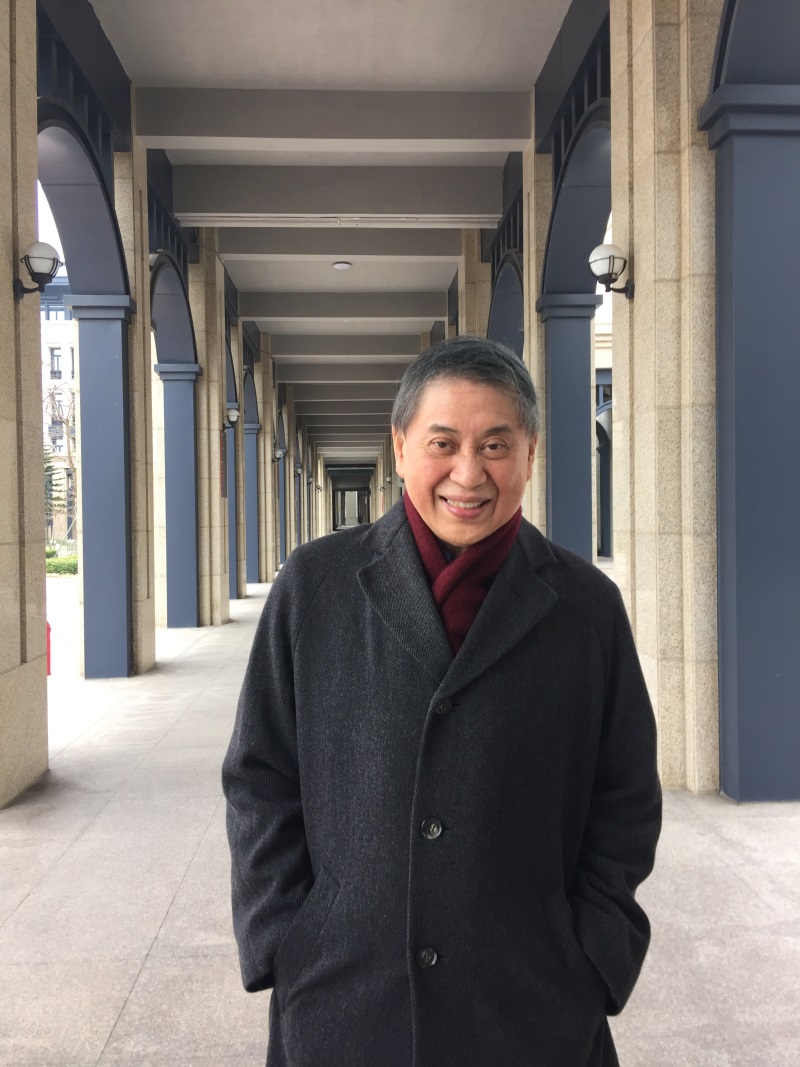
The inscription Pai Hsien-yung wrote for UM during his second visit to the university
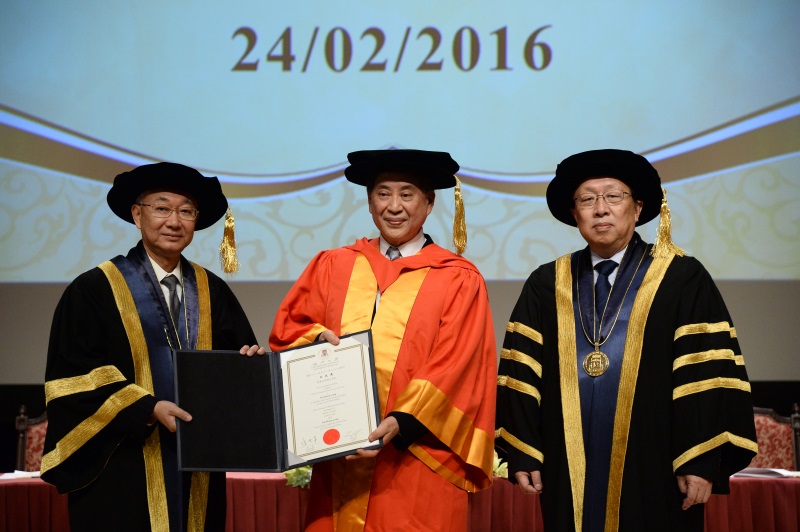
and first visit to the new Campus
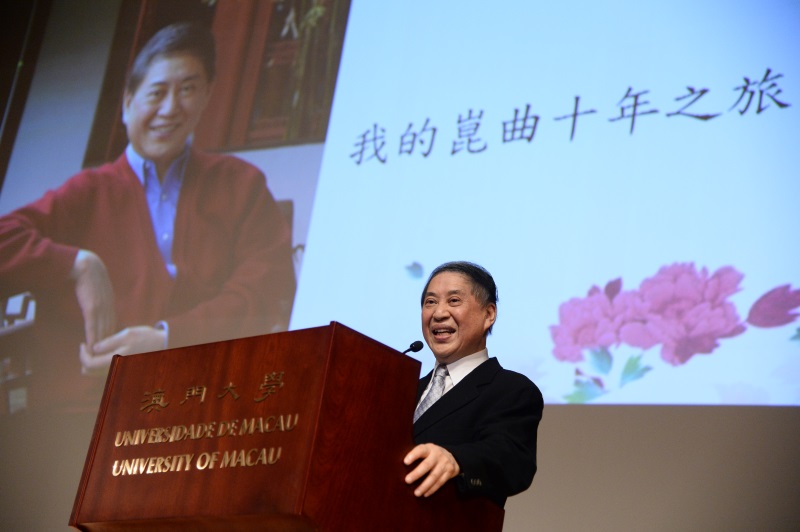
UM University Council Chair Dr Lam Kam Seng (left) and UM Rector Wei Zhao (right) present the honorary doctor of letters degree to Pai Hsien-yung
